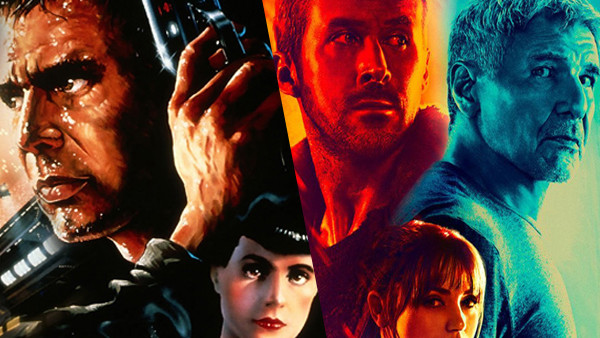
Blade Runner has not aged well
It’s no question that Ridley Scott’s Blade Runner from 1982 is regarded as a culturally iconic science-fiction film. It pioneered the cyberpunk genre and had that real-world, dirty griminess combined in a future setting, which hadn’t really been seen in this caliber. Harrison Ford continues his roguish typecasting all while donning a sweet revolver which gun-nuts like myself dream of. With all this being said, Blade Runner is a movie I have appreciated for a few years. I haven’t seen it in a couple of years; probably since I saw the Final Cut in 2017 leading up to the sequel, Blade Runner 2049, which came out the same year. I remember thinking, “That was pretty solid. Some weird moments, but I can see the appeal and I love the world being presented here. It’s so unique.” Then I saw the sequel just a few weeks afterward and was absolutely blown away. It has easily become one of my favorite movies of all time. I watch it a few times a year, usually on a cold, crisp, rainy day. And then we rewatched the theatrical cut as a class (which honestly isn’t all too different from the Final Cut, but that’s a discussion for a different day.) Only 30 minutes in, I recognized that the original Blade Runner pales in comparison to the sequel.
Let me preface this by saying that I don’t think the original Blade Runner is bad by any means. I appreciate the original in so many ways. In fact, I think objectively speaking, it has changed the way science fiction films have been made and furthermore, interpreted. It shaped film in a way similar to 2001: A Space Odyssey, except Blade Runner, yielded far less financial success. On one of my podcasts, Rising Action, both Josh Johnson and I have mentioned that without these movies, we wouldn’t have gotten movies like Interstellar, Ad Astra, District 9, and other modern sci-fi renditions. This leads to 2049. When we have a film which has learned so much in the past thirty-plus years, is beautifully shot, and immaculately crafted, it makes the original fall-short. There are also some glaring issues with the original.
Some of the tropes haven’t aged well. The main one is that of Deckard and Rachael’s relationship. I’ll flat out say it’s incredibly rapey. The storytellers try to play it off as a “damsel-in-distress noir” archetype, but it feels more like Deckard manipulates her into liking and kissing him than anything else. It doesn’t paint Deckard in a positive light.
The pacing is a huge problem with the movie too. While it’s part of its style, it still can become a chore to get through. The shots are astoundingly beautiful and part of the charm, but the overall plot isn’t all that engaging on a rewatch. It’s much better on the first go around. On a positive note, the philosophical implications are still entertaining. Roy Baty’s monologue is one of the greatest quotes in all of cinema, all thanks to Rutger Hauer’s performance, may he rest in peace. Those moments never get old, but the package as a whole is inconsistent.
2049 also excels in worldbuilding even more than the original. We get far more tidbits regarding the world beyond LA. The thirty-year time gap allows for them to fill in the gaps and expand the timeline, especially regarding technology. The Wallace Corporation has rendered the Tyrell corporation into nothingness, ushering in a new age of replicants. Most have colonized other planets beyond Earth, but Nuclear war has ravaged many of them, all while replicants fought these gory battles. Deckard has moved on and grown past his bounty-hunting lifestyle, having a happy life with Rachael. There’s a large prejudice against replicants, mimicking the racism of our own world. Even with these great additions, they still keep the continuity from the original, for example, with companies like Atari and Coca-Cola still in the limelight. All of this and more creates a fleshed-out world that adds much to Ridley Scott’s original.
2049 shares a lot of similarities to its predecessor, but does them- simply put- better. The movie is probably just as slow as the original, but one component that bolsters the sequel is its music, composed by Hans Zimmer. The original has some beautiful music, but Hans Zimmer is Hans Zimmer. Other than John Williams, you can’t get a much better composer. His score in combination with the cinematography of Roger Deakins creates such a euphoric atmosphere that not only keeps the consistency of the original but improves upon it. On top of it all, Denis Villeneuve’s directorial vision is at its peak in 2049. Ridley Scott made an incredible movie for 1982, but now that we have a newer, more refined installment in the Blade Runner universe, it’s like night and day.
It’s important to recognize that the original was vital to even get the modern version of the film. You can’t acknowledge it without the original. Ridley Scott’s Blade Runner will remain a classic in film, but it walked so 2049 could run.